Wong Kar Wai's Blossoms Shanghai stirs up nostalgia for Shanghai of the 1990s
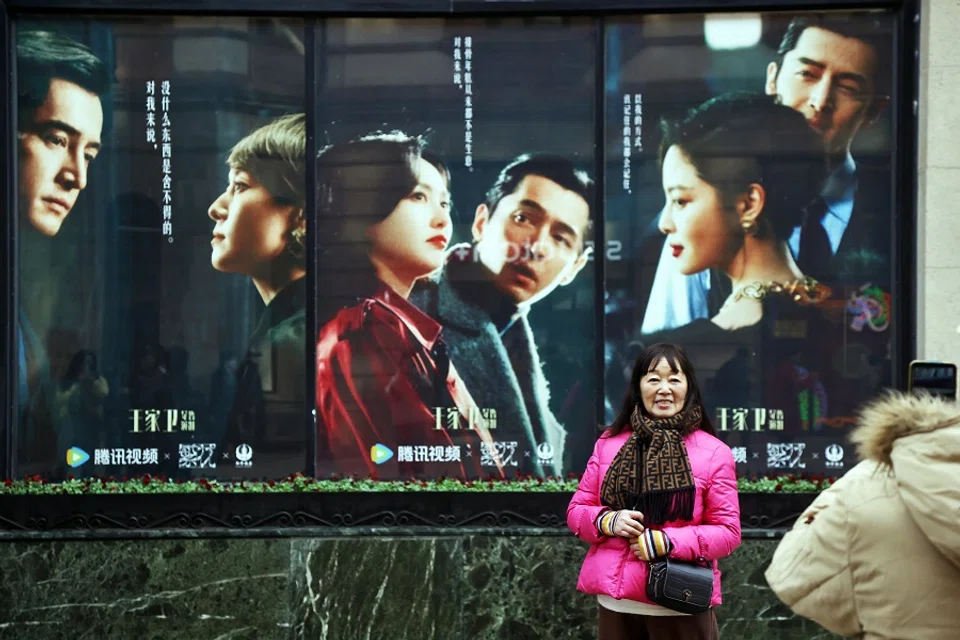
It would be difficult to talk to my Shanghai friends these days without watching the television series Blossoms Shanghai (《繁花》).
The finale of this drama set in Shanghai aired on 9 January, but there is still a lot of buzz about it. Orders for Shanghai dishes featured in the series, such as rice soup and pork chop with rice cakes, skyrocketed on food delivery platforms, while Huanghe Road was full of fans flocking to the area to "check in" and take photographs.
Tai Sheng Yuan restaurant, on which the show's Zhi Zhen Yuan restaurant is based, is fully booked for reunion dinner on Chinese New Year's Eve, and the British suite of Fairmont Peace Hotel, where the drama's male protagonist A Bao stayed, is also fully booked, even though prices have since soared to 16,888 RMB (US$2,370) a night.
Many Shanghai netizens also posted old photographs on social media, confirming that Huanghe Road was indeed bright with neon lights in the 1990s, as depicted through the lens of director Wong Kar-wai. The businessmen who got rich in those years did wear leather jackets, with big, bulky cell phones in hand, while polo shirts from French brand Montagut at 900 RMB apiece were the first luxury items that Shanghai people owned.
I knew the gentle and melodic Shanghai dialect that the characters spoke, as well as how the sharply dressed young people were the country's fashion leaders; I did not know the scene 30 years ago, when life was so vibrant and colourful.
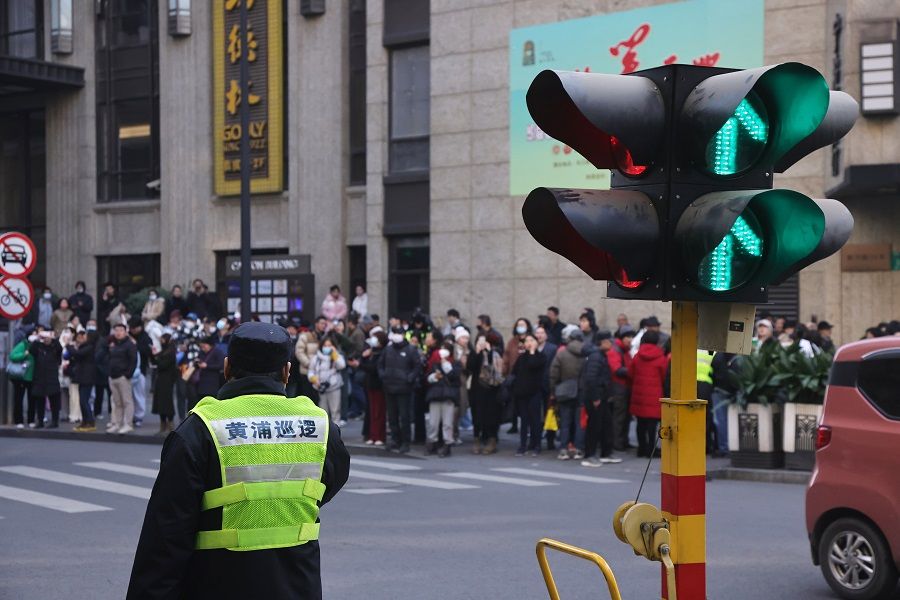
For "Shanghai floaters" like me (沪漂, those who have travelled to Shanghai for work) who did not experience those times, Blossoms Shanghai showed me a Shanghai that was familiar, and yet unfamiliar. I knew the gentle and melodic Shanghai dialect that the characters spoke, as well as how the sharply dressed young people were the country's fashion leaders; I did not know the scene 30 years ago, when life was so vibrant and colourful.
A glimpse of the 1990s
Unlike the novel on which it is based, the drama focuses on the early 1990s. The first episode opens with a narrator speaking about how Deng Xiaoping's southern tour had accelerated the pace of market reforms and made the stock market the latest hotspot. "Everyone has an equal chance and seizing it is potentially life-changing."
The male protagonist A Bao is representative of those who had seized opportunities and changed their lives during the wave of reform and opening up. Under the guidance of his mentor, he earned his first pot of gold in stock trading and later started a foreign trade business, becoming the well-known "Boss Bao".
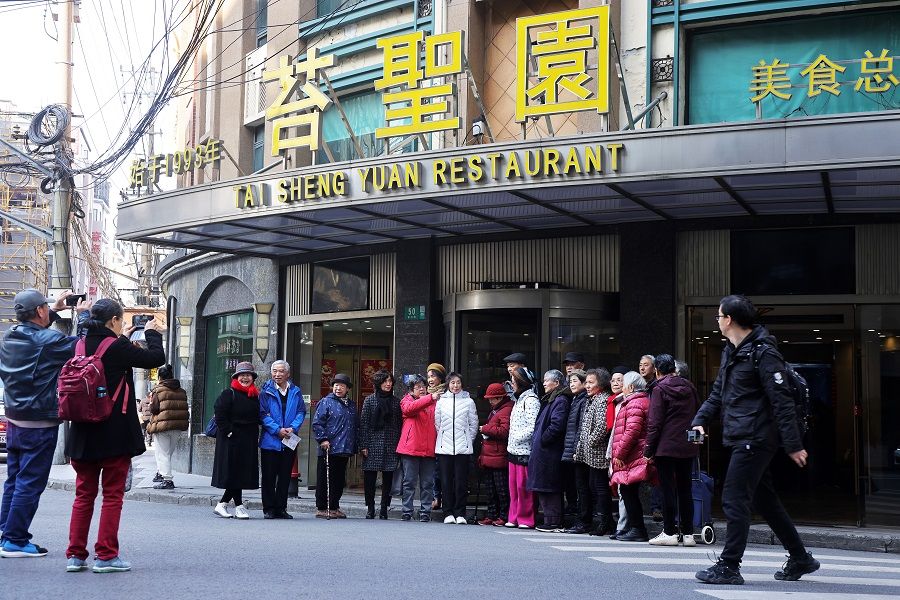
The context of A Bao's road to riches is the process by which China's stock market embraces global norms. The Shanghai Stock Exchange started formal operations in December 1990 with only eight listings, including Dianzhenkong (电真空), the stock A Bao bought. This stock, with a par value of 100 RMB, rose to over 2,500 RMB more than a year later, and many stock traders got rich overnight and had to carry their cash in sacks, like A Bao.
Besides the bullish stock market, the booming retail market also offered rapid development opportunities for private enterprises. To help the Zhejiang fashion brand Sanyang (三羊) grow in popularity, Boss Bao managed to get Chinese pop icon Fei Xiang - Kris Phillips - to promote the brand in a shopping mall. As a result, Sanyang shot to fame in Shanghai and its products sold like hot cakes in malls along Nanjing Road.
It is said that the fictitious Sanyang fashion brand is based on the Youngor Group from Ningbo, Zhejiang. When the first batch of Youngor fashion pieces made their way into shopping malls along Nanjing Road, the manager of the men's department at New World Department Store suggested inviting then-ambassador Fei Xiang to hold an autograph session.
The event attracted a massive crowd, and sales hit a record high. After the event, Youngor's counter at New World Department Store expanded from 50 square metres to 200 square metres, with other department stores vying to collaborate as well - this is how the brand opened up its Shanghai market.
Hope and possibilities
The Shanghai in Blossoms Shanghai is a city of opportunities and hope. Everyone from stock traders and clothing manufacturers, to hotel owners and waiters, show a gung-ho spirit of not admitting defeat or resigning to fate. As the narrator says, "Walking along Nanjing Road in 1993, you feel like it is an era about to take flight. We are fortunate to have been born at the right time and are walking in tandem with the times. Nothing has been defined and anything is possible."
"With no comparison, there is no pain. If the old times were not depicted with grandeur, how could it bring out the dark and gloomy times of today?" - a viewer of Blossoms Shanghai
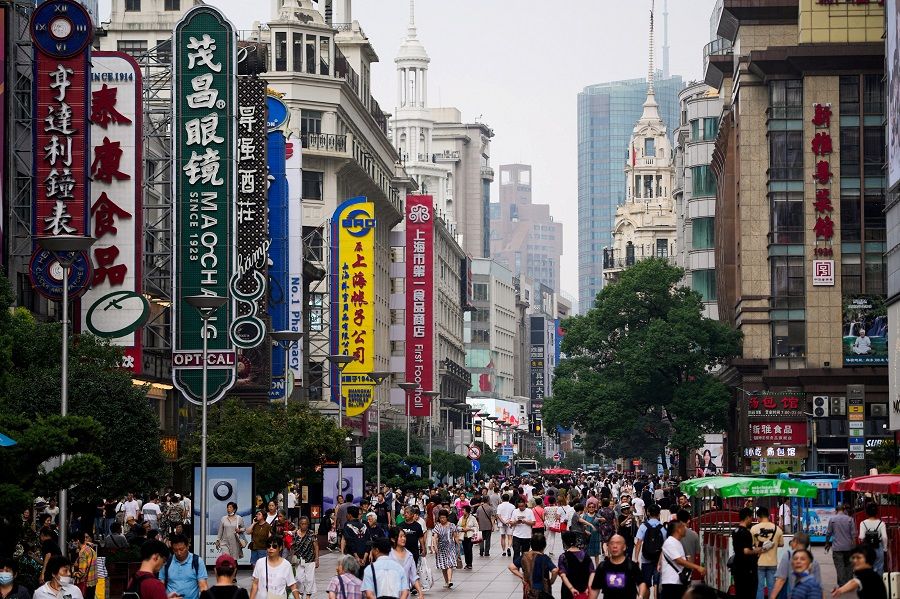
However, critics of Blossoms Shanghai think the television series is too different from the novel, in that it turns a novel about "withering blossoms" into a drama series about hope and prosperity. But those who disagree say, "With no comparison, there is no pain. If the old times were not depicted with grandeur, how could it bring out the dark and gloomy times of today?"
Even as stocks soared in the television series, China's A-shares in real life plummeted. The SSE Index plunged to below 3,000 points late last year, and even fell under the 2,900 mark at the start of the year. In the show, Boss Bao said, "China's stock market just started out in 1994 and every stock is at floor prices. We should just go for it." But stock traders sarcastically responded, "It's been 30 years. Why are the stocks still at floor prices?"
Known as the first commercial street of China, Nanjing Road is still crowded like before, but much fewer people are willing to spend money. With the impact of the pandemic and e-commerce competition, many department stores on Nanjing Road have closed down. As domestic demand recovery remains sluggish after the pandemic, it will be even tougher for retailers to bounce back.
In the 1990s, Shanghai was the bridgehead of reform and opening up, and the testing ground for the market economy. Thirty years later, can Shanghai again find the antidote to China's economic woes?
The scene today
After experiencing the academic rat race, grim employment situation and wave of layoffs, today's Chinese youths have evolved from being "involuted" to "lying flat". Thirty years ago, everyone was starting their own businesses; 30 years later, everyone is taking the civil service examination. The previous generation believed that hard work changes lives, but this generation mockingly says, "The harder you work, the more unlucky you become."
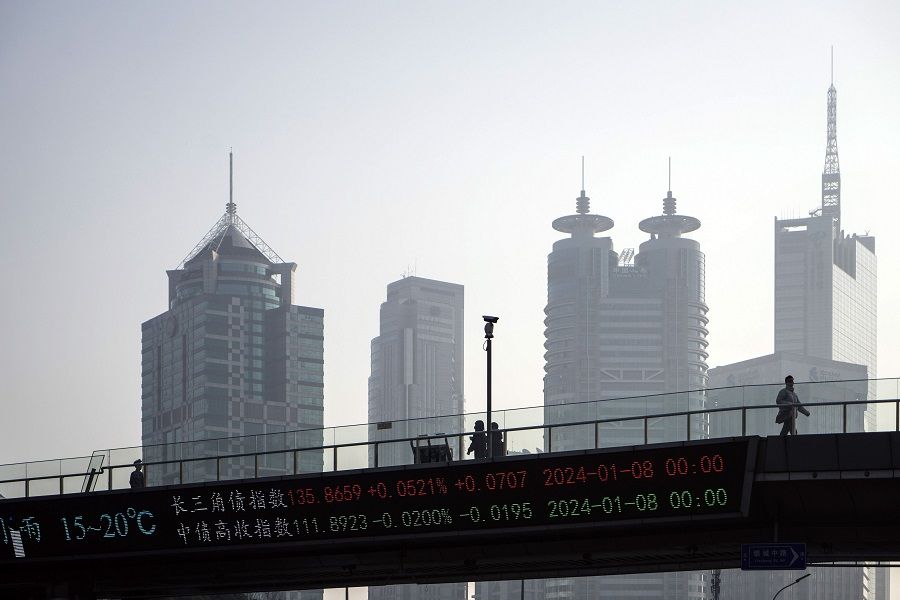
Following the lifting of anti-Covid measures, the Chinese economy has not rebounded as quickly as expected. The property market, investments and stock market are going downhill, but geopolitical risks are increasing day by day. One year on, these problems remain unresolved, highlighting the transformation dilemmas that this massive economy faces in the new era.
When Chinese President Xi Jinping visited Shanghai in December 2023, he urged Shanghai to focus on becoming the international centres for economy, finance, trade, shipping and sci-tech innovation, and to speed up building Shanghai into a modern socialist metropolis with international influence, to "play a leading and exemplary role in advancing Chinese modernisation".
In the 1990s, Shanghai was the bridgehead of reform and opening up, and the testing ground for the market economy. Thirty years later, can Shanghai again find the antidote to China's economic woes? While Blossoms Shanghai has ended, the people are more concerned about when the Chinese economy will blossom again.
This article was first published in Lianhe Zaobao as "《繁花》开罢".
